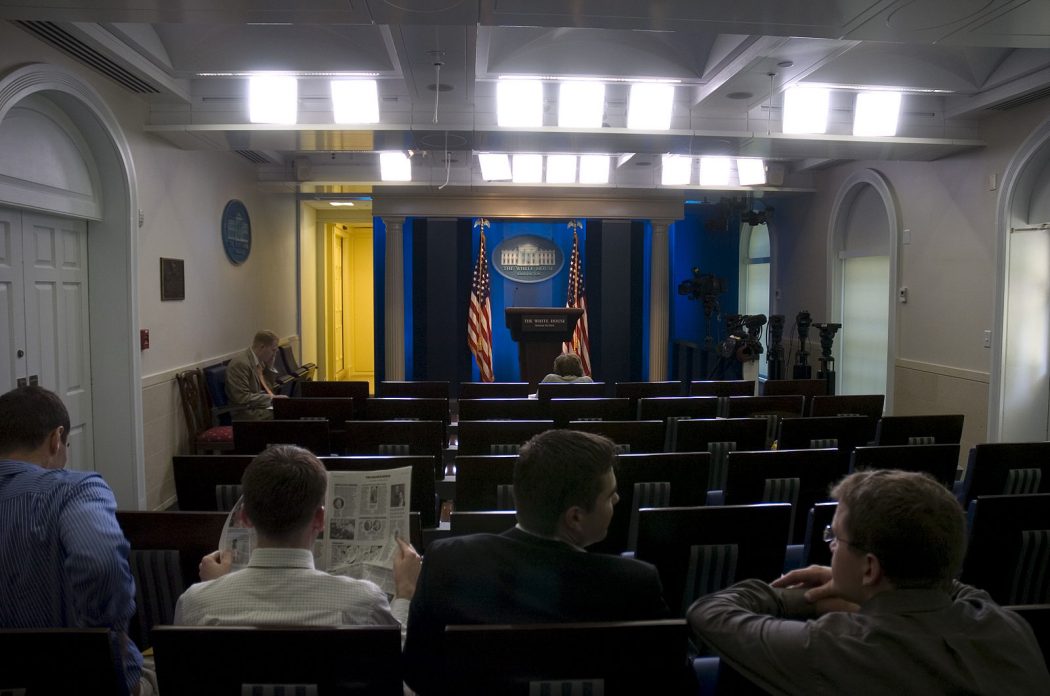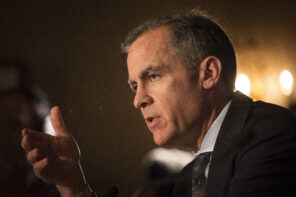American news outlets have benefitted immensely from the Trump presidency. Now they need him gone.
A little over half a decade ago, the news industry was in crisis. Newspapers and cable news, two monoliths of journalism, were struggling to stem declining subscriptions and viewership. An inevitable shift online set off practical and ethical alarms. Would portals, pop-up ads, and paywalls ruin the digital news experience? Could readers make it through entire articles in a medium built to distract? Was there any silver lining around yet another feeling-of-it-in-your-hands experience being placed behind a screen?
Then Trump got elected. Questions about the financial future of news, like many other conversations, were tabled, collecting dust.
…we have paid little attention to the rapid decline of local newspapers and news stations, which have struggled to appeal to consumers fixated on Trump’s presidency.
For news corporations panicked about profits in the early 2010s, Trump’s ascension was divine intervention. Consumers flocked to online platforms and prime-time broadcasts as the boundaries between reporting and reality TV blurred. Five years of crisis journalism has sent profits at the largest news outlets soaring. Trump—the fourth-most-used word in the New York Times in 2018—stands at the center of the coverage, representing an absurd savior.
However, journalism’s existential crises didn’t simply disappear once Trump took office. Several concerns have actually become more salient, congealing into widely-debated buzzwords: fake news, cancel culture, echo chambers. Trump and his supporters have weaponized these terms in an attempt to denounce journalists and the liberal news media, which now includes FOX News. Amid these clashes, we have paid little attention to the rapid decline of local newspapers and news stations, which have struggled to appeal to consumers fixated on Trump’s presidency. Now the COVID-19 economic crisis has drawn warnings of a total local extinction. We are losing sources of timely, impartial updates on local conditions.
The market for journalism is about to dip, and that is okay. It is necessary.
All of these issues provide us glimpses into the deeply flawed architecture of American (and Canadian) news complexes. News companies, as I see it, are built on both a need for consumer attention and a responsibility to accurately inform. These two forces are increasingly at odds; escalating strategies to attract and hold attention have come to undermine journalistic rigour. Faced with a contradiction that has no easy solution, many outlets have simply fallen back on the financial guarantee that Trump coverage provides. Concerns about echo chambers, fake news, cancel culture, local media, fragmented attention spans, polarization… Those can wait.
But Trump—still a ready-made headline in his presidential death throes—will be out of office in less than a month. The COVID-19 crisis is creeping towards a resolution. The market for journalism is about to dip, and that is okay. It is necessary.
To oppose Trump was always, in some convoluted way, to play into his game. Profit that relied on increasingly outrageous ledes was a bubble that would eventually burst. I use past tense because I hope that Trump’s exit will finally trigger a necessary reckoning. I hope that large outlets and small outlets working alongside the public can revive local news sources, assure reliability in a digital world, and compete for consumers by better informing instead of polarizing. Another four years of Trump would have been great for short-term profits and horrible for journalism in the long-run.
In the post-Trump era, the press needs to fund diverse, focused coverage from the local to international level.
Then there is the question of how to view these past four years of reporting. Much coverage of Trump was crucial and empowering, and much coverage played right into his hands. If news companies redirect Trump-era profits towards expanding into new mediums like podcasting, adding depth to existing columns and shows, or producing incisive investigative journalism on a variety of issues, then that money may leave a positive legacy.
Finally, to those who argue that Trump merely accelerated journalistic trends, and that in-depth journalism no longer pays, I remind you that ours is an era defined by malleability. Yes, we have quickly grown accustomed to clickbait and soundbites. At the same time, pandemic isolation has compelled many people to listen to podcasts, read more, and seek out trustworthy national and local sources. News responds to consumer desires and consumers respond to the news they are fed. In the post-Trump era, the press needs to fund diverse, focused coverage from the local to international level. The government needs to subsidize local publications and stations to get them back on their feet. And we, the consumers, need to seek out the sources we want to survive and flourish.
Our attention will determine which journalistic model emerges from an uncertain period. With Trump out of office, there will be a lot more attention to go around. Time to get reading.








